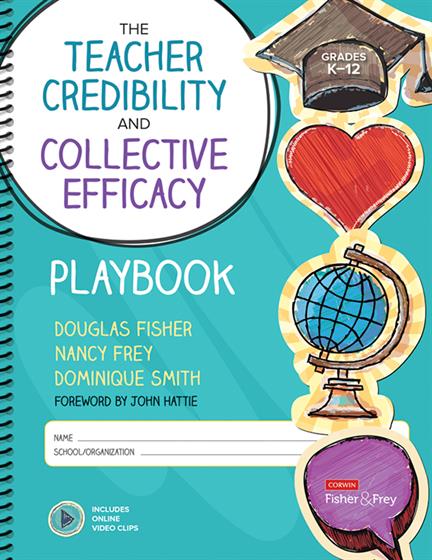List of Videos
Foreword
Acknowledgments
Introduction: Linking Teacher Credibility and Collective Efficacy
Teacher Credibility
Collective Teacher Efficacy
When Teacher Credibility and Collective Efficacy Collide
When Teacher Credibility and Collective Efficacy Thrive
The Long-Term Implications of Teacher Credibility and Collective Efficacy
A Chain Is as Strong as Its Weakest Link
The Organization of This Book
Chapter 1: Teacher Credibility and Collective Efficacy
What Students Remember
Teacher Credibility Defined
Collective Teacher Efficacy
Dimensions of Collective Efficacy
Concluding Thoughts About Teacher Credibility and Collective Efficacy
Chapter 2: Trust
Creating and Maintaining Trust With Students
Trust Defined
A Measurement of Trust
Use Trust Data to Take Action
Regain Trust When It Has Been Damaged
Use Trust to Build Teacher-Student Relationships
Six Easy Actions for Building Teacher-Student Relationships
Collective Efficacy and Trust
Concluding Thoughts About Trust
Chapter 3: Competence
Demonstrating Competence in Your Subject and Your Teaching
Competence Defined
Pedagogical Content Knowledge
Gradual Release of Responsibility Defined
Focused Instruction in Practice
Collaborative Learning in Practice
Guided Instruction in Practice
Independent Learning in Practice
Collective Efficacy and Competence
Concluding Thoughts About Competence
Chapter 4: Dynamism
Harnessing the Power of Dynamism
Dynamism Defined
Dynamism Through Enthusiasm
Dynamism Through Immersion in the Subject
Dynamism Through Creative and Innovative Approaches
Dynamism Through Teacher as Learner
Student Perspectives on Relevant Learning Experiences
Increasing Relevance for Students
Boring Independent Tasks
Visuals and Presentations
Collective Efficacy and Dynamism
Concluding Thoughts About Dynamism
Chapter 5: Immediacy
Attending to Immediacy
Immediacy Defined
Measuring Immediacy
Optimizing Your Immediacy
Proximity
Vulnerability
The Power of Touch
Immediacy and Collective Efficacy
Concluding Thoughts About Immediacy
Chapter 6: Collective Efficacy Skills
Building Collective Efficacy
Supportive Structures for Building Collective Efficacy
Communication Tools Build Collective Efficacy
Pausing
Paraphrasing
Posing Questions
Providing Data
Putting Ideas on the Table
Pay Attention to Self and Others
Presume Positive Intentions
Collective Efficacy and Relational Trust
A Measure of Faculty Trust
When Trust Is Broken
Concluding Thoughts About Collective Efficacy Skills
Chapter 7: Collective Efficacy in Action
Collective Effort and Collaboration
Collective Responsibility + Action = Collective Efficacy
Set Collective Efficacy Into Motion
Learning Walks
Microteaching
Assignment Analysis
A Model for Collective Efficacy in Action
Leadership Sustains Collective Efficacy and Teacher Credibility Efforts
Concluding Thoughts About Collective Efficacy in Action
References
Index





